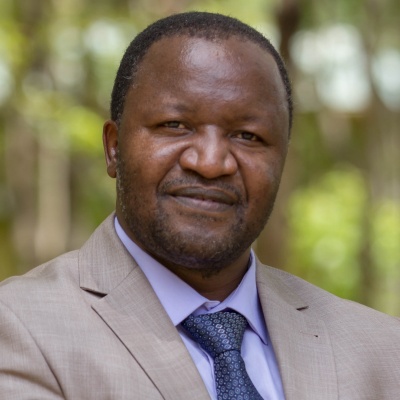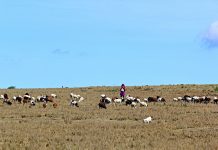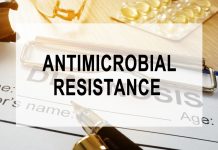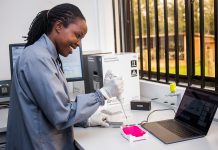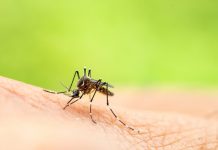Gerald Misinzo and Mark Rweyemamu from SACIDS Foundation for One Health provide a detailed look at one health research by the Africa centres of excellence for infectious diseases of humans and animals
In 2016, the World Bank, in partnership with 8 national governments from 8 countries in Eastern and Southern Africa (excluding South Africa) selected 108 proposals from which 24 were selected as Centres (ie ACEs) to be designated as Africa Centres of Excellence in a wide range of scientific domains. Two of these are associated with the SACIDS Foundation for One Health and serve as Africa Centres of Excellence for Infectious Diseases of Humans and Animals in Eastern and Southern Africa: one based at the University of Zambia, Lusaka, and the other at Sokoine University of Agriculture (SUA) in Morogoro, Tanzania. The scheme became operational in 2017.
The programme of the Africa Centres of Excellence (ACE) is based on developing research competence, primarily through PhD and MSc programmes. Each ACE is expected to attract at least 20% as regional students and as close to equity as possible for female students. The ACE based at SUA has also attracted additional support from the PASET Regional Scholarship and Innovation Fund, which targets support for up to 10,000 PhD students in the Applied Sciences, Engineering and Technology (ASET) fields, over a 10-year period horizon, with most of the sponsored students being trained in African universities beyond their country of own residence/citizenship.
In December 2019, the ACE enrolment at SUA (in collaboration with the Muhimbili University of Health and Allied Sciences – MUHAS) had a cohort of 51 PhD and MSc students, 25 (49%) of whom were from outside Tanzania, and 28 students (55%) were female. For the University of Zambia, ACE enrolment consisted of 56 PhD & MSc students, of whom 16 (29%) were from outside Zambia.
Student-based research is within defined research themes with students and their supervisors operating in clusters of Communities of Practice (CoP). The following account summarises such themes and provides a few examples of the topics being pursued to advance the concept of Detection, Identification and Monitoring of Infectious Diseases with the view to their risk management:
THEME/CoP 1: Antimicrobial Resistance
Leader, Professor Mecky Matee
The work of this CoP centres on examining the genomic epidemiology of antimicrobial resistance (AMR) (to understand the flow of resistomes) in the context of health systems and the analysis of the socioeconomic and policy analysis approaches to define the scale and the impact of AMR in East and Southern African countries.
The research apprentices in this theme comprise of 1 Postdoctoral Research Fellow and five PhD students. The Postdoctoral Fellow (Dr Bugwesa Zablon Katale) has applied genomics to study the whole genome of Mycobacteria to assess the role of bovine Mycobacteria in human disease and to unravel the genes that are responsible for Multi-Drug-Resistance in human Tb. He has recently been awarded a new grant by the European & Developing Countries Clinical Trials Partnership (EDCTP) to evaluate the role of whole genome sequencing in clinical early detection of multi-drug resistant Tb strains and thereby influence the choice of drug therapy to overcome resistance. He has also analysed the most target bacterial genes that are responsible for antimicrobial resistance in East Africa.
AMR-PhD Example 1: Zuhura Kimera
Muhimbili University of Health and Allied Sciences (MUHAS), Tanzania
Genomic epidemiology of multi-drug resistant Escherichia coli and Klebsiella pneumoniae in poultry, pigs, fish and the environment in Tanzania.
Zuhura’s research focus is on the genomic epidemiology of AMR in humans and the environment. For example, she is exploring the association of intensive animal farming methods with the emergence of antimicrobial-resistant genes and its potential to spread to humans via the environment. She is conducting a study to identify drivers of antimicrobial use (AMU) and resistance (AMR) in poultry and domestic pig farming. Coupled with laboratory work to determine phenotypic and molecular characteristics of MDR E. coli and K. pneumoniae 58 out of targeted 889 samples collected were from poultry, domestic pigs, fish and the environmental (soil, sediments, household slurry and ocean water). What we found was high usage of veterinary antimicrobials for prophylactic purposes, especially tetracycline and quinolones, inadequate extension officers, uncontrolled disposal of wastes from households, uncontrolled disposal of human and veterinary drugs and weak implementation of the legal framework. We have submitted our findings to Antimicrob Res Infect Control. We hope to finalise sample collection and phenotypic identification later on this year, which will hopefully lead to the publication of two manuscripts on phenotypic identification and AMU pattern of E. coli and K. pneumoniae. Genotypic characterization of the E. coli and K. pneumoniae is expected to start in October 2020.
Details of related publications can be found here:
THEME/CoP 2: Emerging and Vector-borne Diseases
Leaders, Dr Leonard Mboera and Professor Gerald Misinzo
This CoP focuses on developing competence for identifying novel emerging pathogens/diseases in the world and/or variants of previously known pathogens in a previously unrecognised disease entity in Eastern and Southern Africa. It also addresses insect vector-borne viral disease of public health importance, some of which might have previously been misdiagnosed as malaria or other common syndromes.
It is through this programme that Professor Gerald Misinzo and his Postdoctoral Research Fellow, Dr Augustino Chengula, have worked with the National Laboratory in Tanzania and collaborated with colleagues in Uganda, Democratic Republic of Congo (DRC) and Zambia in the identification of the new COVID-19 virus (SARS-CoV-2), including its sequencing to determine the genomic epidemiology of COVID-19 in Africa in relation to the rest of the world. The second Postdoctoral Research Fellow in this CoP – Dr Calvin Sindato – has provided epidemiological modelling expertise to aid the prediction of risk or spread of epidemic diseases and assessment of mitigation measures and the associated decision support.
EVBD-PhD Example 1: Maxwell Waema, SUA, Tanzania
Detecting respiratory viral infections using hydrogen microparticles multiplex qPCR
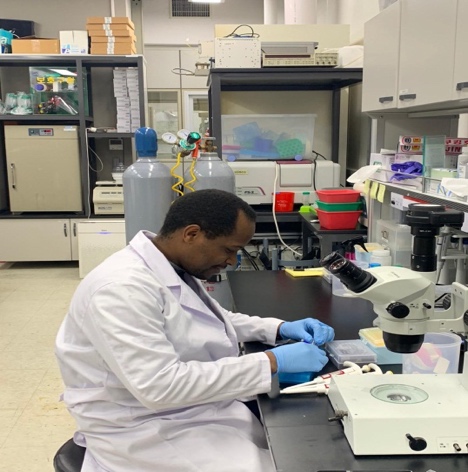
Maxwell is developing a genomics-based diagnostic tool for emerging respiratory diseases and the following summarises his work to date:
Despite lessons learned and progress made from the Middle East Respiratory Syndrome (MERS) outbreak and the current coronavirus pandemic that causes COVID-19, the influx of respiratory viral infections are showing similar symptoms to other existing diseases, making it difficult to diagnose based only on symptoms. Confirmation and repeated diagnosis cause a lot of social anxiety. Therefore, what is needed to actively address this are rapid and precise multi-diagnostic methods for various infectious diseases with similar symptoms.
Currently, the gold standard method for RNA detection is RT-PCR whereby the mild temperature of RT often causes unexpected binding between primers and random genes. This one-step RT-qPCR leads to a very low multiplicity. This limitation calls for diagnostic technology that controls the release of PCR elements by storing PCR primers inside thermo-responsive polymer capsules, separating them from the RT reaction to prevent adverse side reactions.
In an attempt to detect respiratory viral infections using hydrogen microparticles multiplex qPCR, PhD student, Maxwell Waema, has fabricated thermo- responsive primers immobilised networks by encapsulating the PCR primers into low melting point agarose nanocapsules and then introduced them into hydrogel microparticles immobilised with RT primers. He is comparing the efficiency of the qPCR conventional assay with his newly developed tPIN assay.
EVBD-PhD Example 2: Gaspary O. Mwanyika, SUA
Development of a nanobody-based assay for the detection of dengue and chikungunya viruses
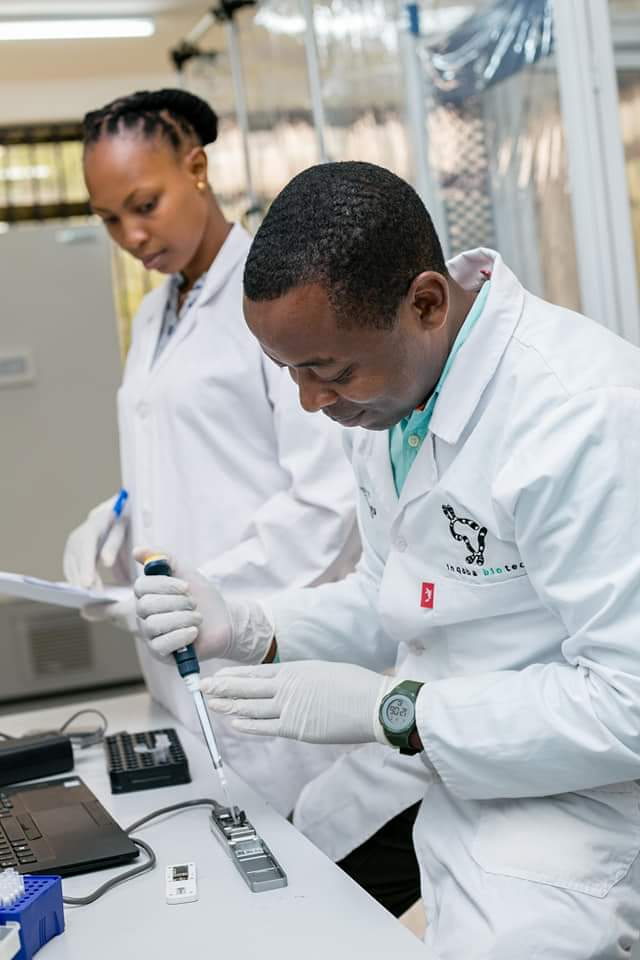
As an African junior researcher, Gaspary Mwanyika is an exemplary model of what can be achieved in scientific research with the right support. He is pursuing his PhD research degree as part of the World Bank-Government of Tanzania, funded Africa Centre of Excellence for Infectious Diseases of Humans and Animals (SACIDS-ACE).
Gaspary is developing a nanobody-based assay for the detection of dengue and chikungunya viruses. He hopes that the generation of data in his study will contribute to a better understanding of the epidemiology of dengue and chikungunya virus infections in Tanzania as well as globally. He hopes that his nanobody-based assay will be more cost-effective than conventional tests and help to inform public health interventions in Tanzania and beyond. During the course of his programme, he has attended several specialised training sessions in Tanzania and Uganda, conducted fieldwork and testing, and given both oral and poster presentations at various international scientific conferences.
Gaspary has also published a paper titled ‘Diagnostic performance of commercially available NS1-antibody based ELISA and rapid tests in detecting acute dengue infection: a systematic review’ under review in the PLOS Neglected Tropical Diseases (Impact factor 4.4), and is currently preparing a manuscript titled ‘Molecular characterization and sequencing of dengue viruses during the 2019 epidemic in Tanzania’.
Gaspary has also received supplementary grants from the Intra-Africa Mobility Small Grant for Junior Researchers 2019, worth €3,000 from the Africa-German Network of Excellence in Science (AGNES).
THEME/CoP 3: Viral Diseases of Food Security Importance
Leader, Professors Sharadhuli Kimera and Gerald Misinzo
The work of this theme was recently published in Open Access Government by Professors Kimera and Misinzo.
THEME/CoP 4: One Health Cross-Cutting
Leader, Professor Esron Karimuribo, Calvin Sindato and Eric Beda
This theme covers issues that are generally associated with Public Health or Animal Health Systems. A previous issue described SACIDS’s work in respect of digital technology supported disease surveillance.
Currently, we are collaborating with the Africa Centres for Disease Control and Prevent (Africa CDC) in respect of Events Based Disease Surveillance at the community level to support COVID-19 surveillance in Africa. This theme is also undertaking systems analysis research.
OHS PhD Example 1: Janeth George, SUA, Tanzania
System-thinking Approach for Integration of Animal Health Surveillance Systems in Tanzania
Janeth’s research strategy for impact-driven systems analysis for One Health Disease Surveillance is summarised in the figure below.

The study sought surveillance data from livestock keepers (100%, n=33) and slaughter facilities (60%, n=33) using paper-based forms for the Agricultural Routine Data System (ARDS) that collects animal-related data including diseases; field surveillance forms were found not to be in use much.
Preliminary findings suggest that the theory of change for animal health surveillance systems is clear, but there are a lot of challenges in its implementation which can be addressed through integration. Potential interventions include the digitisation of current data collection forms, provision of refresher training for livestock field officers, interoperability of the existing system and capacity building with veterinary shops to collect relevant surveillance information. One manuscript from this study has been published, and two are currently underway.
Please note: This is a commercial profile



